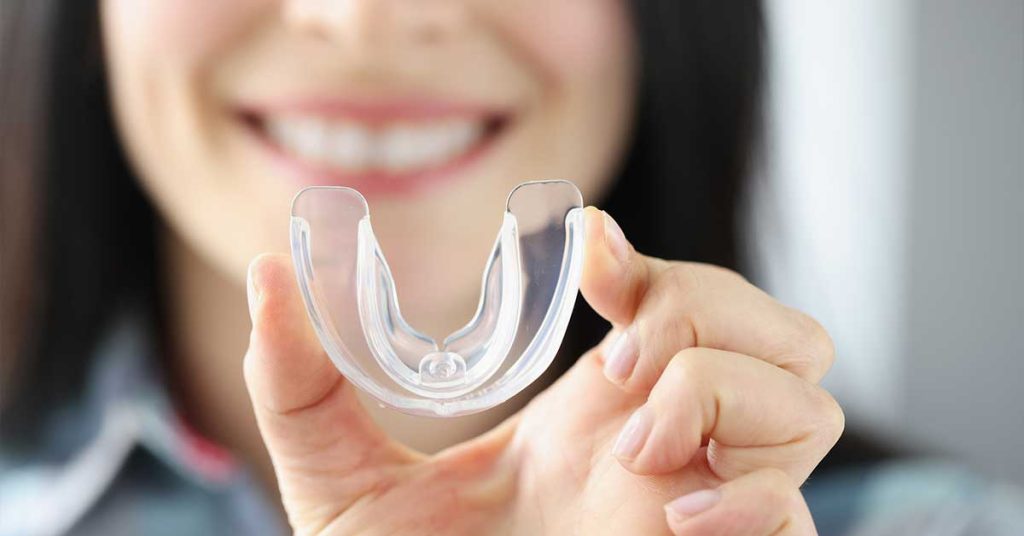Some problems that happen inside the mouth can be obvious, such as decay or bleeding gums. However, other conditions can be quite hidden and difficult to identify. Barring extreme problems such as cysts and tumors, the most common of these hidden conditions is teeth grinding. That is because – more often than not – this grinding takes place at night while you’re sleeping. It could go on for years undetected, and the effects could be quite severe. A night guard is a great solution to this problem. It is a simple, cost-effective method to help stop and control the effects of teeth grinding. So, who should wear a night guard – and is it always the best choice? Let’s find out.
Why Do We Grind Our Teeth?
There are many reasons behind teeth grinding, but most can be directly related to stress. If you’re stressed about work, school, dealing with a family issue, or other stressors and not able to release that stress, this could manifest as teeth grinding at night when you sleep.
How Should Teeth Grinding Be Treated?
As with any condition, eradicating the problems starts mainly with treating the cause. You have to explore the reason behind your stress and try to eliminate it. In many cases, you’ll find the habit will stop in time if you address the cause.
The Oral Effects of Teeth Grinding
Teeth grinding can have detrimental effects on your teeth and mouth, especially if it has been going on for a long time. These effects can include:
- Wear of the teeth, and subsequently over-sensitivity.
- Loosening of the teeth in time.
- Fracture and chipping of the affected teeth.
- Problems of the muscles and bones of the jaw joint.
Who Should Wear a Night Guard?
A night guard is a plastic mold that is custom-made to fit your teeth and mouth. Its main job is to absorb the forces of the harmful grinding and mashing of your teeth while you sleep. Hence, the name “night” guard.
Night guards are mainly needed for people who grind their teeth at night. However, they can also be used in other situations such as jaw problems and the realigning of the jaw joint. You’ll need careful follow-up with your dentist to see if the night guard is working or would need to be changed.
However, we cannot stress hard enough the importance of addressing the root cause of the problem. We can help you with manufacturing the night guard and following up on its effects. Your task will be to find other ways to deal with your stress and eradicate the problem at its roots.
Do you need to schedule your next dental appointment? Click here to view our locations and schedule your appointment!

